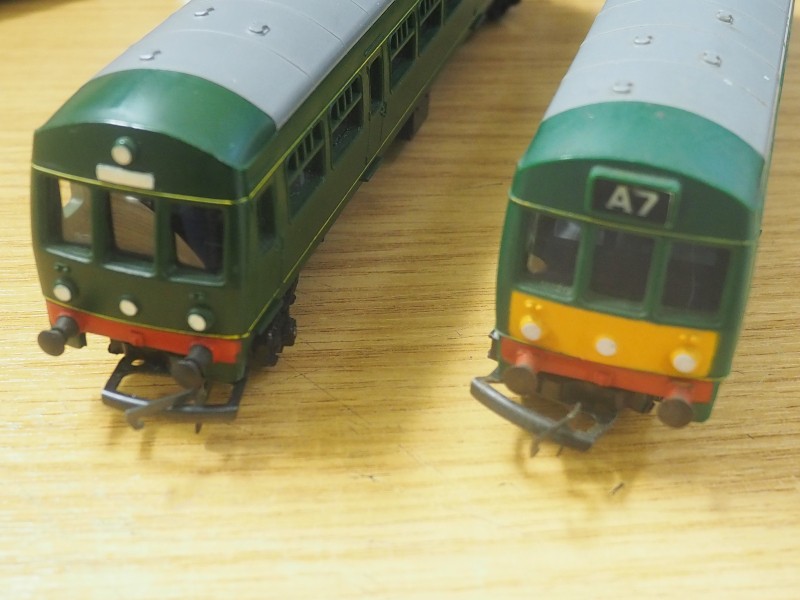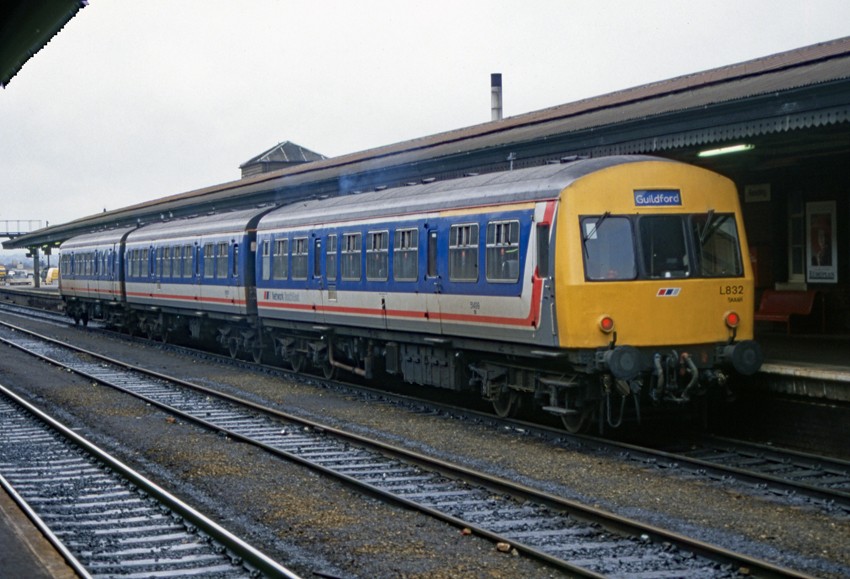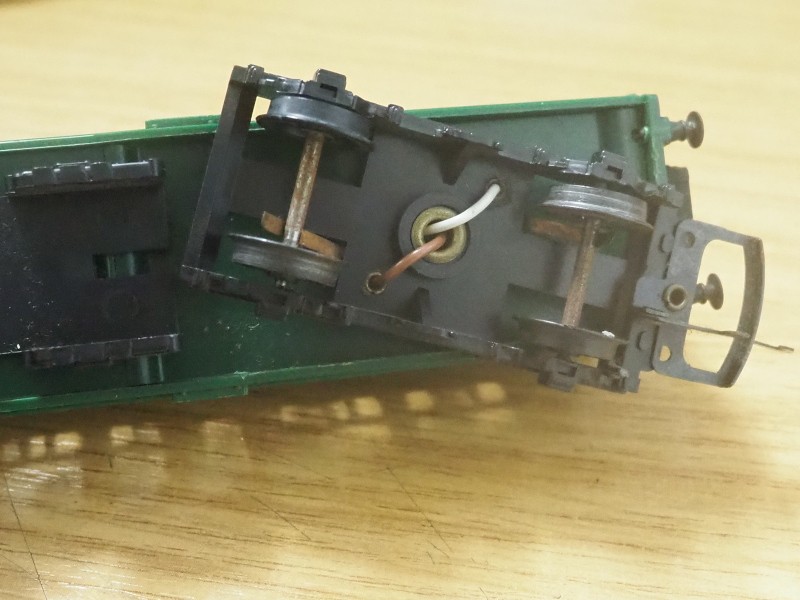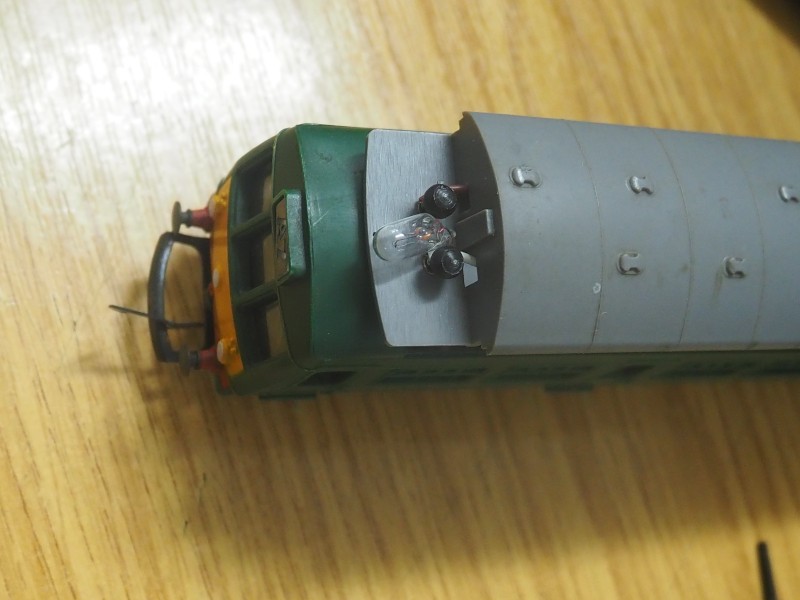Let there be light!
Most original Triang DMUs do not have any lighting at all (left, above). They have four lights on the front... all of which are painted dummies. Later models did include a lit head code (right, above), replacing the original destination board & top light.
The Triang DMU is based on the Metro-Cammell "Lightweight"; but it's very similar in style to the later Class 101 (below). With the older style model, removing the centre lights, and the slight ridge (painted yellow in the model) will make the front a pretty close representation of the Class 101.
Photo credit: By Murgatroyd49 - Own work, CC BY-SA 4.0, Wikipedia
The later models with a head code, actually have lighting installed - but only for the headcode. This is achieved with axle pickups on one bogie (the rear bogie of the dummy unit, and the front bogie of the power unit); the light itself is a simple 12v grain-of-wheat bulb.
Detail of the pickups; One wheel is a stamped metal wheel, the other is plastic. The wipers on the axle transfer power to the two wires, which go up through the rivet. An inline diode ensures the head code is only illuminated in the direction of travel.
The grain-of-wheat bulb, with two plastic "knobs" holding it in position.
To complete the lighting package will require:
- Drilling out the two bottom lights & adding red/white LEDs
- Cutting out the destination board (and filing it flush to the body), adding a warm white led behind it & a destination label
- Adding LEDs to the roof for the passenger compartment lighting.
- For the motor units, adding appropriate wiring for the directional lighting (DCC) & the internal lighting
- For the centre coach(es), adding internal lighting & a means of transferring power to those lights - probably via the couplings
- I'd also like to make the connection via "pogo pin" connectors, so the roof can be easily removed for access to the interior.
- A constant-voltage/current circuit to allow the lighting to operate at full brightness, even at partial power on a DC layout (DCC will be much easier).





No Comments